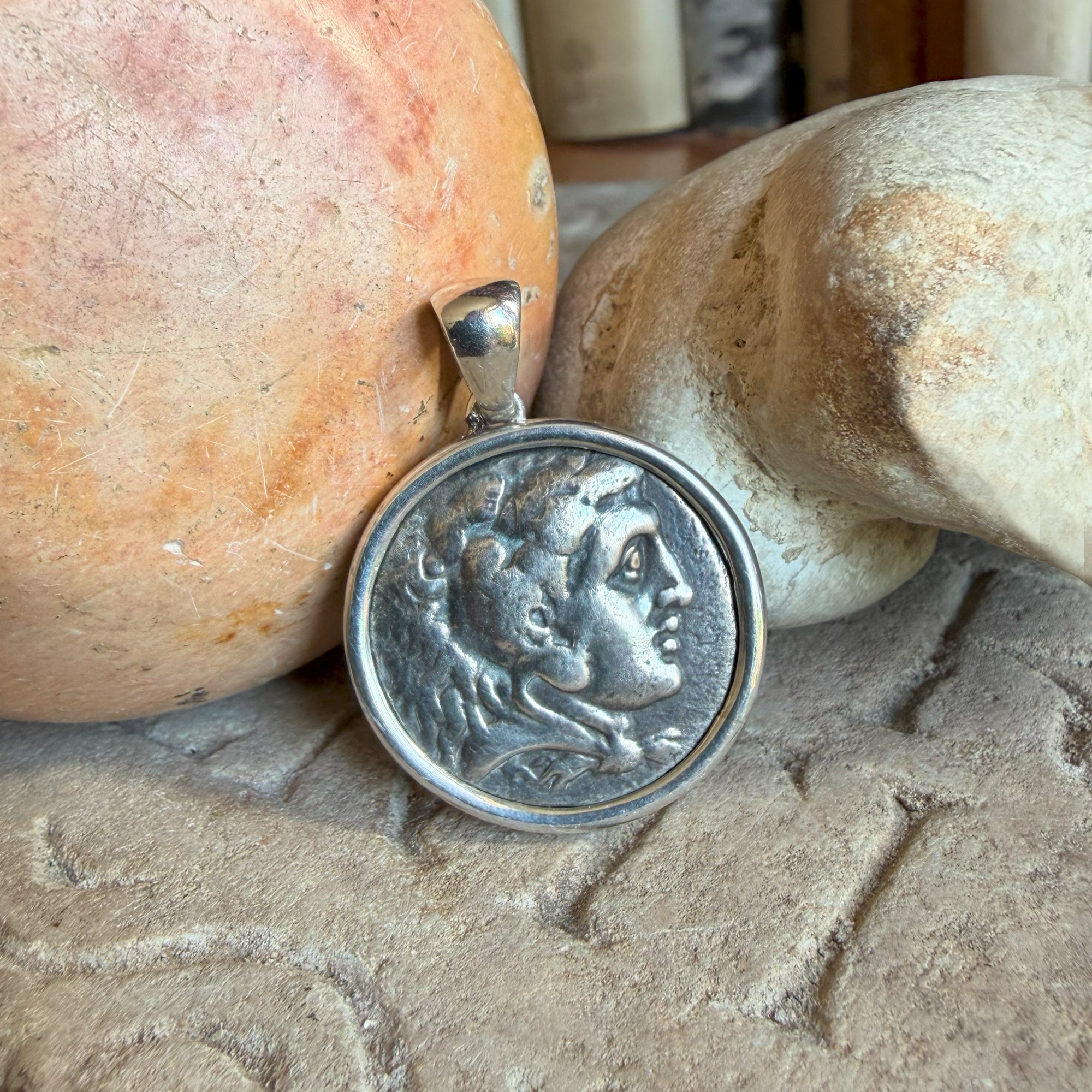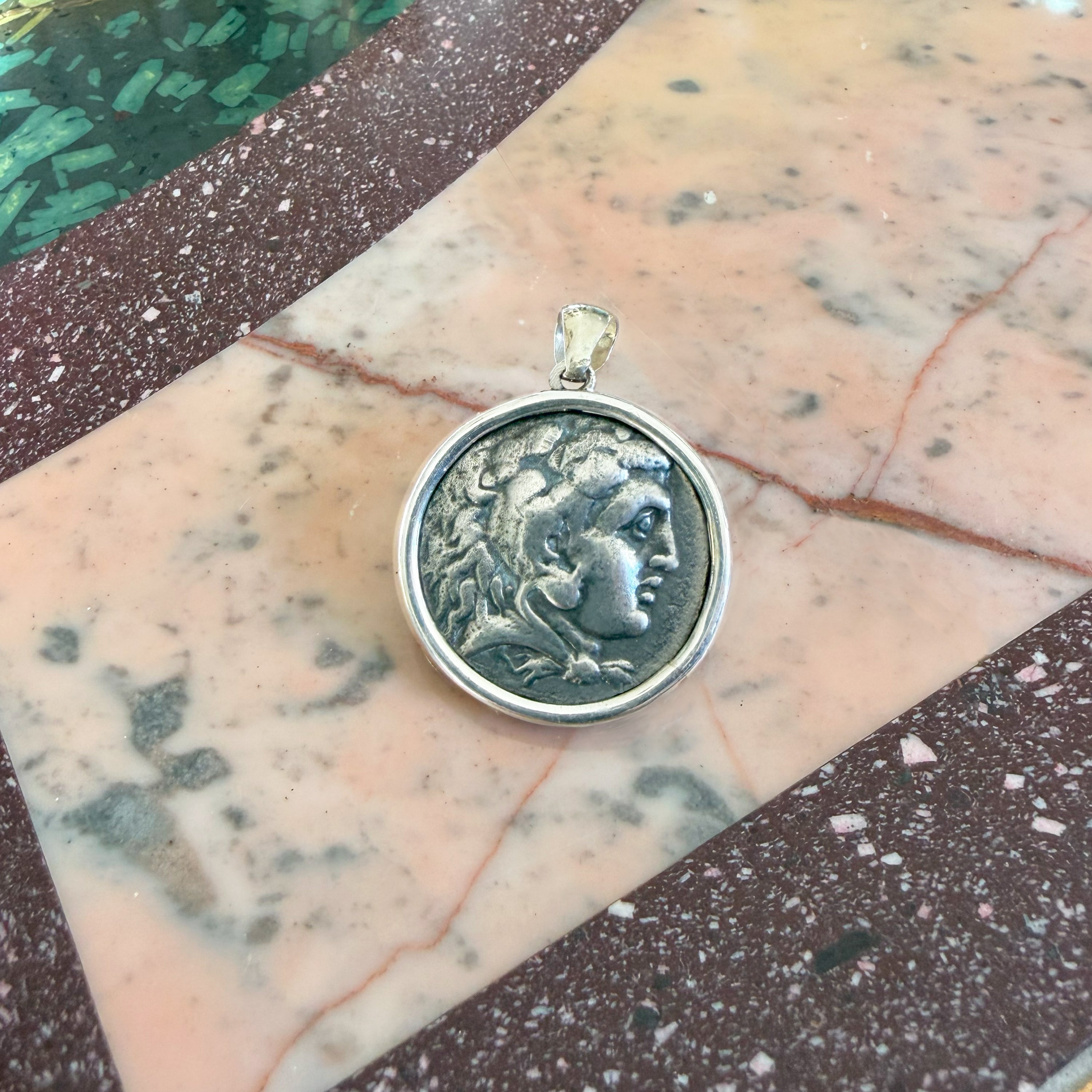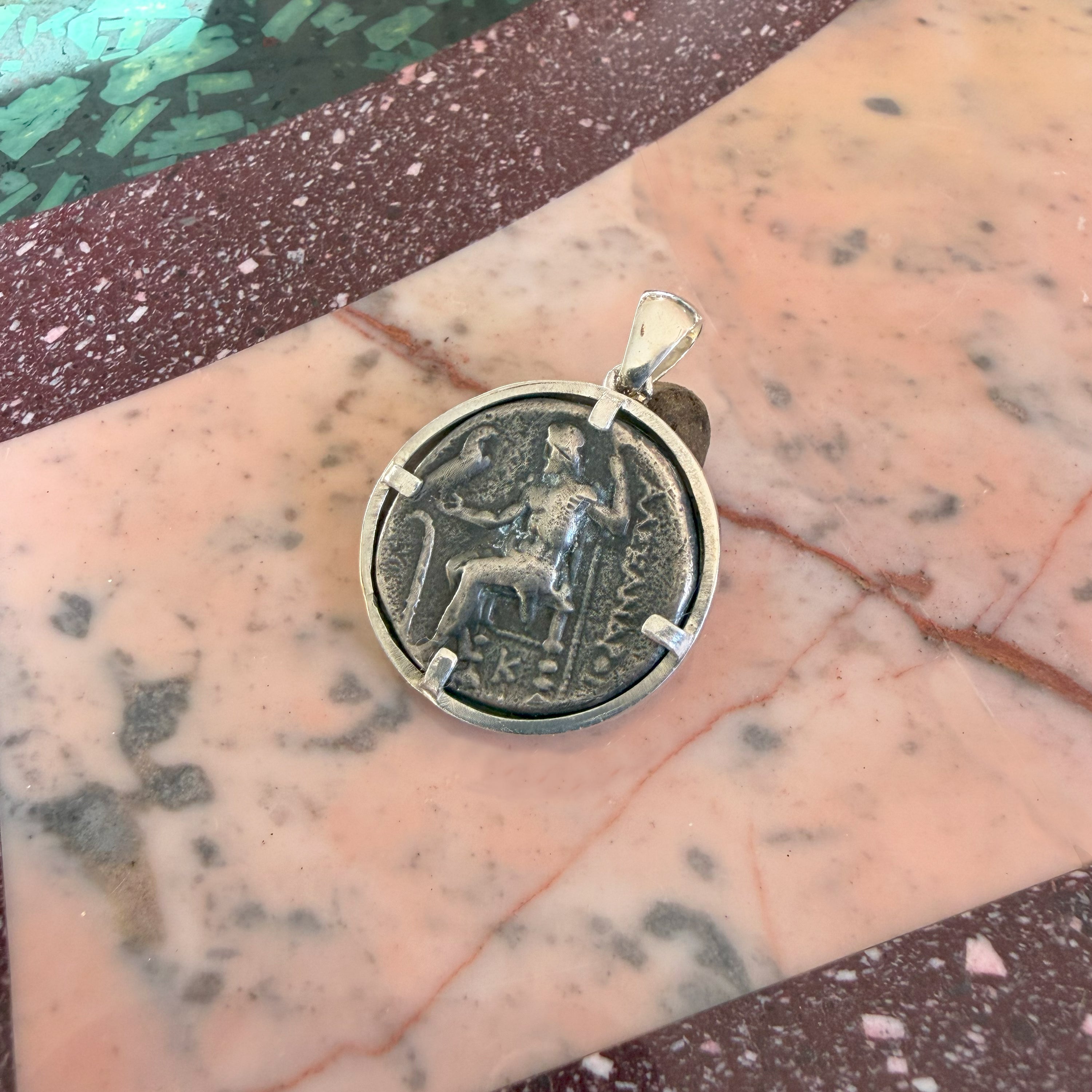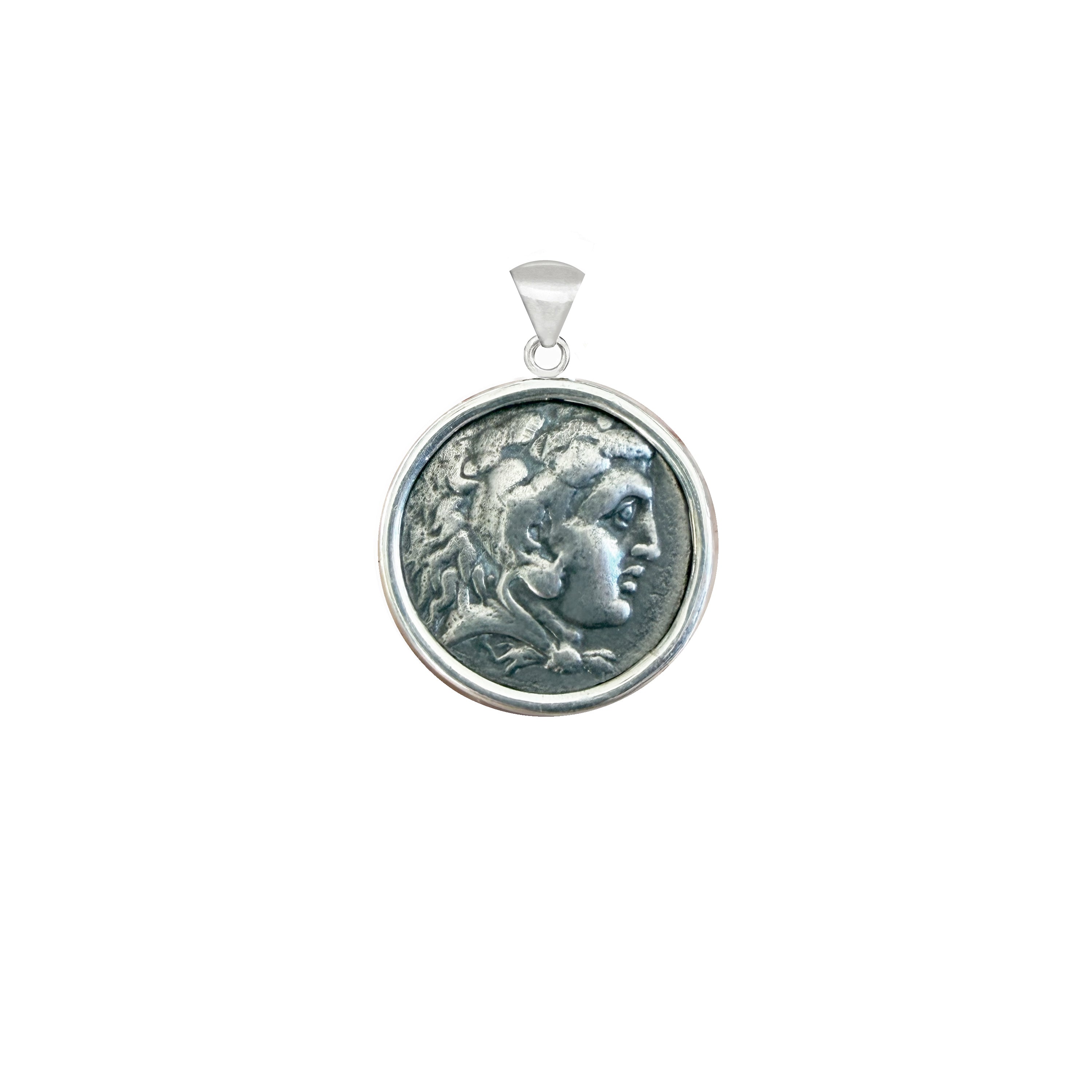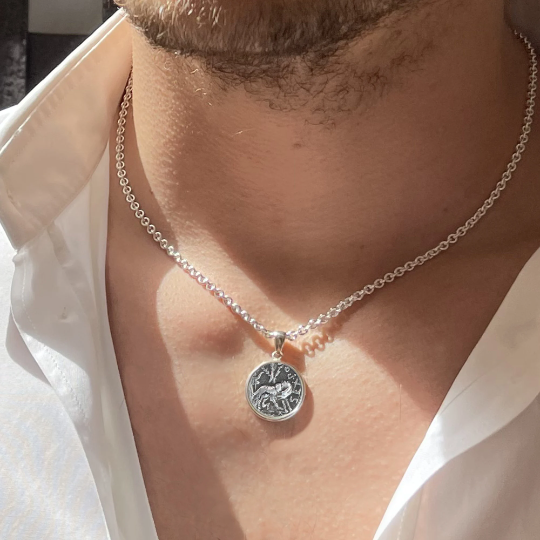HERACLES (Minted by Alexander the Great) Genuine Ancient Greek Coin 336-323 BC Silver Pendant
This pendant features a stunning 4th-century BC Greek silver coin minted by Alexander the Great. The coin depicts the legendary hero Heracles (known as Hercules in Roman mythology) wearing lion skin. On the reverse side, we can see Zeus seated on a throne, holding a scepter and accompanied by an eagle.
In Greek mythology, Heracles was considered a divine hero. He was born to Zeus and Alcmene and raised by Amphitryon. He was known for his incredible strength, courage, and intelligence and was considered a champion of the Olympian order against chthonic monsters. In Rome, he was widely popular, and the Roman emperors Commodus and Maximian even identified themselves with him.
Despite his great strength, Heracles also possessed wit and cunning, using these qualities to succeed in challenges where brute strength alone was not enough. He was also known for his sexuality, having both male and female lovers. Heracles was often depicted with a lion skin and a club, and he was considered the patron and protector of gymnasia and palaestrae.
Heracles' legendary feats included conquering dangerous archaic forces and making the world safe for mankind, as well as playing games with children. He was a passionate and emotional figure, capable of both great deeds for his friends and terrible vengeance against his enemies. However, in some works of literature, his actions were driven by forces outside rational human control, highlighting the divine aspects of his character.
Our jewelry store, Serra Roma, proudly presents an exquisite collection that beautifully honors the ancient traditions of Greek and Roman civilizations. Each piece in our collection, including authentic ancient Roman and Greek coins and intaglios, is accompanied by a certificate of authenticity, providing proof of its historical significance and origin.

